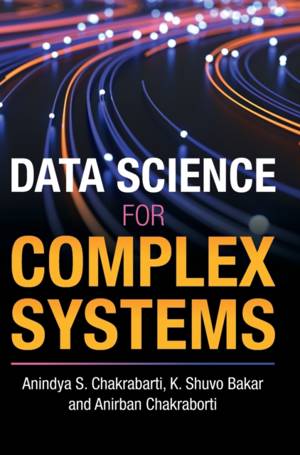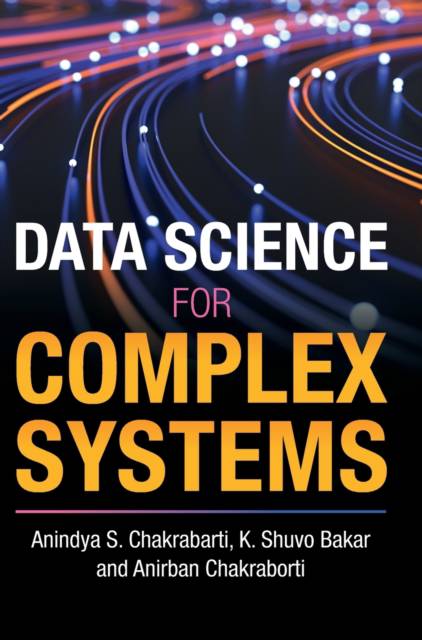
- Afhalen na 1 uur in een winkel met voorraad
- Gratis thuislevering in België vanaf € 30
- Ruim aanbod met 7 miljoen producten
- Afhalen na 1 uur in een winkel met voorraad
- Gratis thuislevering in België vanaf € 30
- Ruim aanbod met 7 miljoen producten
Zoeken
Data Science for Complex Systems
Anindya S Chakrabarti, K Shuvo Bakar, Anirban Chakraborti
Hardcover | Engels
€ 100,95
+ 201 punten
Omschrijving
Many real-life systems are dynamic, evolving, and intertwined. Examples of such systems displaying 'complexity', can be found in a wide variety of contexts ranging from economics to biology, to the environmental and physical sciences. The study of complex systems involves analysis and interpretation of vast quantities of data, which necessitates the application of many classical and modern tools and techniques from statistics, network science, machine learning, and agent-based modelling. Drawing from the latest research, this self-contained and pedagogical text describes some of the most important and widely used methods, emphasising both empirical and theoretical approaches. More broadly, this book provides an accessible guide to a data-driven toolkit for scientists, engineers, and social scientists who require effective analysis of large quantities of data, whether that be related to social networks, financial markets, economies or other types of complex systems.
Specificaties
Betrokkenen
- Auteur(s):
- Uitgeverij:
Inhoud
- Aantal bladzijden:
- 289
- Taal:
- Engels
Eigenschappen
- Productcode (EAN):
- 9781108844796
- Verschijningsdatum:
- 25/05/2023
- Uitvoering:
- Hardcover
- Formaat:
- Genaaid
- Afmetingen:
- 170 mm x 244 mm
- Gewicht:
- 684 g

Alleen bij Standaard Boekhandel
+ 201 punten op je klantenkaart van Standaard Boekhandel
Beoordelingen
We publiceren alleen reviews die voldoen aan de voorwaarden voor reviews. Bekijk onze voorwaarden voor reviews.








